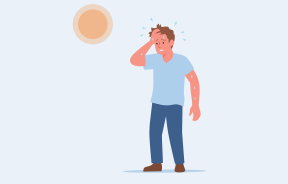Cellphone Users Report 'Phantom Phone Vibration Syndrome,' But Few Worry As Digital Life Evolves

Since the dawn of the mobile age, the phenomenon of phantom vibration syndrome — also known hypovibochondria — has haunted users of cellphones as the devices increasingly meld with the human body and mind.
A study published last year showed that nearly 90 percent of college students reported the experience, saying they felt phantom vibrations from their phone, carried in a front pocket.
“Something in your brain is being triggered that’s different than what was triggered just a few short years ago,” Larry Rosen, a researcher who studies how technology affects the mind, told NPR in an interview this week. “If you’d asked me 10 years ago, or maybe even five years ago, if I felt an itch beneath where my pocket of my jeans were, and asked me what I would do, I’d reach down and scratch it because it was probably a little itch caused by the neurons firing.”
That sensation in the mind compels him to check his phone, convinced — momentarily — that someone has reached out to touch him.
“We’re seeing a lot of what looks like compulsive behavior, obsessive behavior,” Rosen said. “People who are constantly picking up their phone look like they have an obsession. They don’t look much different from someone who’s constantly washing their hands,” as may be symptomatic of the common obsessive compulsive disorder. “I’m not saying that it is an obsession, but I’m saying that it could turn into one, very easily," Rosen said.
In the study published last year by researchers at Indiana University-Purdue University, 90 percent of those who had felt such phantom vibrations essentially laughed off the phenomenon, saying that it didn’t bother them. Still, Rosen advises mobile users to check their anxiety — no matter how large or small — by periodically abstaining from use.
“One of the things I’m really adamant about in spite of being very pro-technology, is just weaning ourselves off of the technology for short periods,” Rosen said. “And by short periods, I mean maybe just 30 minutes or an hour.”
Approximately one in 10 students reported feeling anxiety about the phantom vibrations, which happened on average once or twice every couple of weeks. Those most anxious about the vibrations also tended to experience emotional arousal from text messaging. Researcher Michelle Drouin and her colleagues wrote that the findings “suggest that targeting individuals’ emotional reactions to text messages might be helpful in combating the negative consequences of both text message dependency and phantom vibrations.”
However, the nonchalance expressed by most young adults, the researchers added, suggests that “interventions aimed at this population may be unnecessary.” The phenomenon remains, for now, a small tick of the evolving digital life of the human animal.
Source: Drouin M, Kaiser DH, Miller DA. Phantom Vibrations Among Undergraduates: Prevalence And Associated Psychological Characteristics. Computers In Human Behavior. 2013.
Published by Medicaldaily.com



























